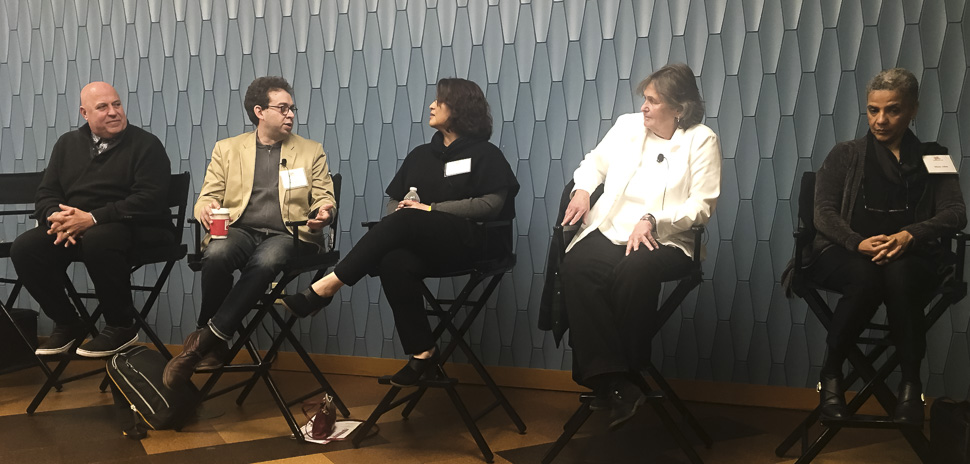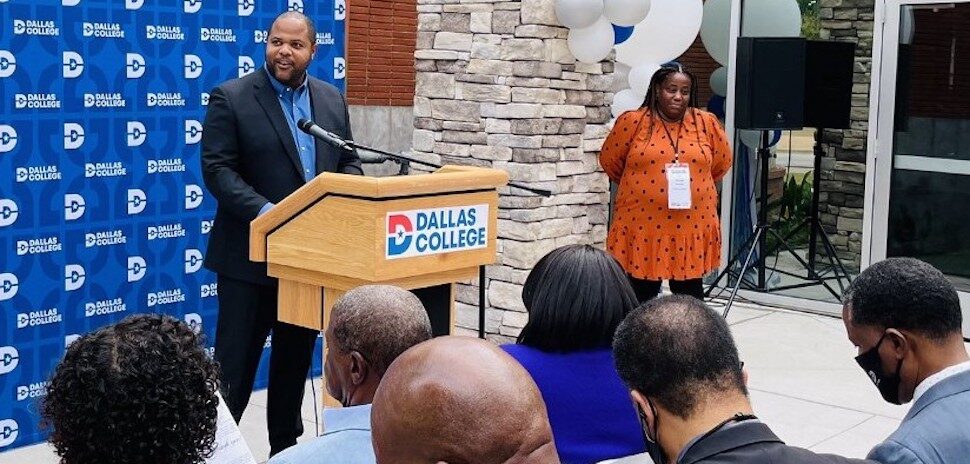At the fourth annual Dallas Festival of Ideas, speakers and panelists discussed ways to make Dallas a more inclusive, integrated, and accepting city.
“Let us treat others with the same passion and compassion which we want to be treated.”
Bishop Edward Burns
The festival, which is a collaboration between The Dallas Institute of Humanities and Culture and The Dallas Morning News, kicked off Saturday with an announcement about a new yearlong initiative designed to encourage the golden rule — “do unto others how you would have done unto you”– especially in regards to the influx of immigrants in the Dallas area.
The campaign entitled, #BeGolden, unites the Catholic Diocese of Dallas, other leaders in the faith community, local government officials, and more.
“The full integration of newcomers in the life and flow of our city is critical,” said Dallas Mayor Mike Rawlings.
Rawlings and Bishop Edward Burns attended the festival at the J. Erik Jonsson Central Library in Dallas to talk about #BeGolden.
“Let us treat others with the same passion and compassion which we want to be treated. If we want security, let us give security. If we want life, let us give life. If we want opportunities, let us give opportunities,” Burns said.
From there, panels dove into four main topics — the physical city, the healthy city, the educated city, and the inclusive city.
As the keynote speaker for the physical city, Larry Scarpa, an architect dedicated to inclusive housing complexes, explained how integrated housing can decrease the high levels of economically-segregated communities throughout Dallas.
“Buildings can be a catalyst for revitalizing neighborhoods if they’re done in the right way,” said Scarpa, who is principal at Brooks + Scarpa Architects.
“Buildings can be a catalyst for revitalizing neighborhoods if they’re done in the right way.”
Larry Scarpa
Mark Lamster, the architectural critic of the Morning News, moderated a panel, which examined current challenges Dallas faces in regards to its physical layout.
“We’re supposed to be talking about a connected city, but we have a very segregated city,” Lamster said. “We have a tendency in Dallas to create walled, gated communities. Because our streets are not designed for pedestrians, we end up creating islands rather than places where we can expand.”
In order to combat these economic borders, Cyndy Lutz, vice president of neighborhood investment for Dallas Habitat for Humanity, discussed the role policy developers play in breaking down housing barriers and restrictions.
“We’re big proponents of the new housing policy that’s fighting its way through city hall right now. Our goal is not as much shelter as it is breaking the cycles of generational poverty,” Lutz said.
Leading off the healthy city talk, Gina Kolata, staff writer for The New York Times health section, discussed emerging innovative technology that can improve the overall health of individuals in the city.
“There’s a lot that can be done, a lot of it is motivation, and today with internet and apps, we can be motivated,” Kolata said.
“Education can be the great equalizer.”
Nikole Hannah-Jones
During the afternoon session, The New York Times Magazine staff writer Nikole Hannah-Jones emphasized how integration in education is the only way to truly enhance learning and create equal opportunities across genders and races.
“Education can be the great equalizer,” Hannah-Jones said during the educated city discussion.
Nancy Bernardino, principal of Dallas ISD’s Solar Preparatory School for Girls, voiced her beliefs on integrating the discussion of race and social justice into the educational system.
“At our school we try to be really intentional about having conversations about race, and talking about racial justice,” Bernardino said.
This Say Yes to Dallas video offers a recap of the event.
Get on the list.
Dallas Innovates, every day.
Sign up here to get what’s new and next in Dallas-Fort Worth.
![]()

































































